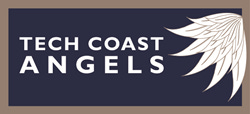Doctor & Investor: Building Wealth Beyond the Clinic
I work with a select group of doctors on the venture side, and a common question I receive is how I would approach organizing their finances for capital accumulation.
Many are understandably drawn to strategies focused on capital preservation. They often prefer to rely on a steady, healthy salary while parking most of their savings in conservative vehicles like CDs or investing in rental properties. This approach provides stability and works well for those who genuinely enjoy their profession and plan to work for many years.
However, this reliance on active income can become a double-edged sword. While it offers immediate financial security, it also ties their financial independence to their ability to keep working. For many doctors, this means having to work longer than they would like to sustain their current lifestyle. Exploring strategies that prioritize building passive income streams and accelerating wealth accumulation could provide greater flexibility and earlier financial freedom, especially for those considering a shift away from full-time practice.
My grandparents grew up in West Los Angeles, and after my grandfather completed medical school at USC, he moved to Pacific Beach to practice as a general practitioner. Over his career, he delivered more than 5,000 babies and made countless house calls to patients in need. Tragically, in his 40s, he was diagnosed with early-onset Parkinson's disease, likely due to prolonged exposure to toxic fumes working below deck aboard a ship during his youth. The tremors that followed made it impossible for him to continue as a physician, cutting short a career that required a steady hand and precision. The silver lining is that they did found the Parkinson’s Association of San Diego, which has done a great deal of good.
My grandfather had opportunities to invest in booming markets like Carmel Valley and Encinitas but, like many physicians, stayed within his comfort zone and avoided unfamiliar financial ventures. Without a foundation of passive income, the high costs of long-term care depleted his assets when his active income as a doctor ended. Seeing his experience inspired me to help physicians build lasting financial stability through passive income, so they can avoid similar vulnerabilities.
I’ve narrowed down 80% of the valuable opportunities I see to three key areas: investing in medical real estate, joining medical investment groups or funds, and taking on advisory roles. These options stay rooted in the medical field while creating diversified passive income streams, making it easier to reduce reliance on active income over time.
Medical Real Estate
Investing in office or medical condos—or even larger office buildings—can be a smart strategy, particularly when you rent these spaces to colleagues from medical school. These types of properties often have low cap rates, meaning they offer a higher multiplier on income, typically around 15-20x.
To make the most of this type of investment, prioritize securing a favorable purchase price and implementing property improvements that attract tenants. Strategic enhancements can boost the property’s market appeal, enabling you to command higher rents. Pair these upgrades with a well-structured, long-term lease to ensure steady income and enhance the investment’s overall stability and value. Additionally, depreciation provides a valuable tax benefit by creating a non-cash expense that reduces the taxable rental income generated by the property.
By carefully managing the process, it’s possible to build $1 million in equity with an initial outlay of less than $1 million.
MedTech Funds or Investment Groups
Consider investing in a MedTech fund or joining a physician-focused investment group like Tech Coast Angels. These platforms offer unique opportunities to leverage your medical expertise while diversifying your portfolio. MedTech funds often provide co-investment opportunities, allowing you to invest directly in technologies aligned with your core competencies, giving you a distinct edge in understanding the potential impact and value of the innovations.
When I worked with Tech Coast Angels - San Diego as an analyst a decade ago, the group’s strong physician membership created a powerful dynamic. For example, when an oncology startup pitched, there were often three oncologists in the room who could rigorously evaluate the opportunity. Their insights either reinforced confidence in the business model or identified critical flaws, helping to refine the group’s investment decisions.
This expertise-driven collaboration consistently boosted the group’s overall returns, with input from subject matter experts leading to the most successful investments. By participating in a similar group, you can capitalize on both the collective knowledge and the co-investment opportunities, enabling you to grow wealth while contributing your expertise to transformative medical technologies.
Advisory Roles with Medical Startups or Funds
Startup medical companies and MedTech funds actively seek medical advisors who can provide credibility, authority, and connections to strengthen their appeal to customers and investors. These advisors offer unique perspectives drawn from their clinical or professional experience, making their input critical to the success of these ventures. Serving in this role allows physicians to extend their expertise beyond traditional practice, often shaping the direction of innovative technologies or companies.
Advisorships with these organizations frequently come with meaningful incentives, such as 2% of the fund's carry or advisory shares. These benefits can yield substantial rewards if the company achieves its growth targets and succeeds. For many physicians, these roles present a pathway to transform their advisory work into significant equity stakes, combining professional contributions with financial upside.
After a career devoted to helping others, these opportunities allow physicians to pivot toward personal goals and financial independence. By leveraging their hard-earned expertise, they can participate in cutting-edge advancements while building wealth and pursuing long-held dreams.
Diversifying income streams is crucial for physicians who want to maintain financial security while minimizing their dependence on active income. While traditional investment strategies such as conservative savings accounts or bonds can provide stability, they may not offer the flexibility or wealth-building potential needed for early financial independence.
By investing in areas like medical real estate, MedTech funds, or advisory roles that align with their expertise, physicians can build passive income streams, strengthening their financial foundation and gaining the freedom to cut the tether from a full-time clinical schedule.








